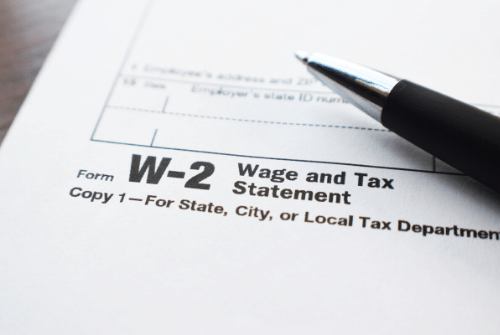How Much Do You Have to Make to File Taxes?
Paying your 2019 taxes has taken on a new twist. Due to the Coronavirus Pandemic, Tax Day - April 15 each year - is now July 15, 2020. This has given everyone four extra months to file without penalties or interest. For Americans who might not have made a significant amount of income in 2019, the question can be asked, “Did I make enough to file taxes?” It might be a simple question, but it has a few complex answers, so let us break it down.
The 2019 Federal Standard Deduction
If you made less than 2019’s standard deduction, you may not need to file a federal tax return. The Standard Deduction is what the IRS designates the portion of income not subject to tax. That can mean different things, depending on your filing status and income, so we’ve expanded it below. Note: While we can offer you some generalizations and the facts, it is always important to check with a tax professional regarding your specific circumstances.

Single Filing Status
- $12,200 for singles under 65
- $13,850 for singles 65 and older
Married and Filing Jointly
- $24,400 if spouses are both under 65
- $25,700 if one spouse is 65 or older, and the other is younger than 65
- Also, $25,700 if both spouses are 65 or older
Head of Household
- $18,350 if you’re under 65
- $20,000 if you’re 65 or older
Qualifying Widow(er) with dependent children
- $24,400 if you’re under 65
- $25,700 if you’re 65 or older
Additionally, a married person, no matter their age, who intends to file separately from their spouse had to make less than $5 in 2019 to be exempt.
The IRS makes considerations for dependents. For example, a teenager is claimed by his or her parents as a dependent, but their part time job over the course of the year earned them $12,500. They must file a federal tax return. Other considerations for dependents 65 years and older or blind have also been made. Find them at IRS.gov.

Resources for Tax Questions
If you have more questions about taxes, again, we direct you to IRS.gov or your tax professional for advice specifically suited to your situation. The online IRS resources offer in-depth resources for understanding your filing status, information on credits and deductions, plus instructions relative to submitting each tax form. Remember, with the tax filing date extended to July 15, there is still plenty of time to consult a nearby tax preparation expert.
For other money-related questions, don’t hesitate to contact EZ Money. We’re happy to help ease the burden of your current financial situation with cash advances, government check cashing, bitcoin transactions, and more.



 APPLY NOW
APPLY NOW
 Find a location
Find a location